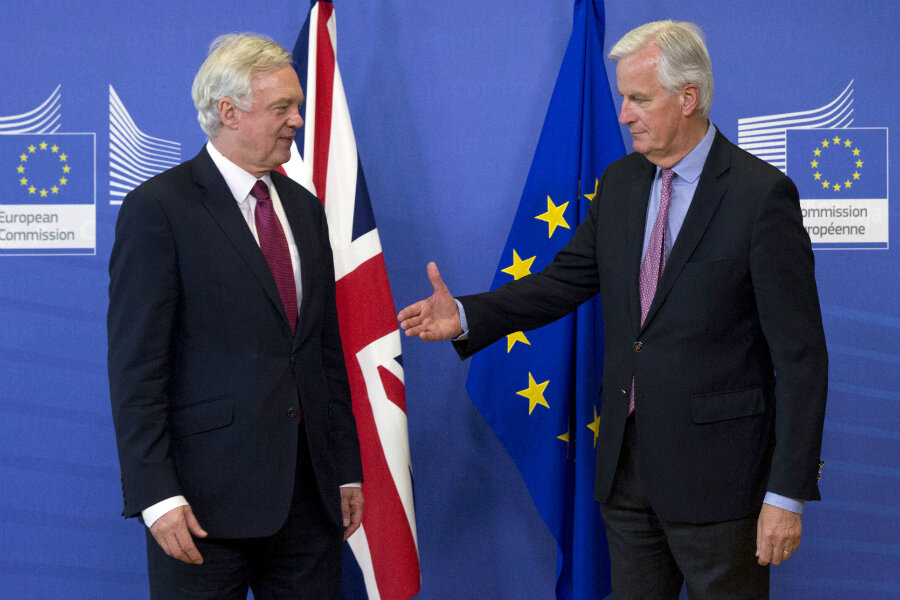Brexit negotiations with EU finally begin
| Brussels
A year after its historic vote, Britain on Monday finally opened negotiations with the other 27 European Union nations about leaving the bloc, with the final outcome, due in 2019, as globally important as it now seems unpredictable.
The two chief negotiators, Michel Barnier of the EU and David Davis from Britain, immediately set off to find common ground in their working relationship, an important touchstone to see how amicable the biggest political divorce in decades will become.
"Our objective is clear. We must first tackle the uncertainties caused by Brexit," centering on citizens living on each other's territory, border arrangements between Ireland and the United Kingdom, and the amount that Britain stands to pay to get out of its previous EU commitments, Mr. Barnier said.
Mr. Davis said he was looking for a "positive and constructive tone" to deal with the myriad issues dividing both sides.
While the EU negotiating team led by Barnier has been ready for months, British efforts on Brexit stalled even after it triggered the two-year process on March 29. An early election this month, in which British Prime Minister Theresa May lost her Conservative majority in parliament, only added to the problems.
"Our big problem is that we have no picture, no idea at all, what the British want," said German Manfred Weber, the head of the EPP Christian Democrat group in the European Parliament. The other EU countries have a united position, but the British are "in chaos," Mr. Weber added.
May's government said it was "confident it can achieve a bold and ambitious deal that will work in the interest of the whole UK."
The EU said it was also looking for a good compromise. Austrian Foreign Minister Sebastian Kurz said: "If we don't succeed, both sides will lose."
Davis and Barnier have one key issue over the first weeks of talks: building trust after months of haggling over leaks and figures over the final bill that Britain would have to pay for leaving.
Time is pressing. After Britain's June 23, 2016 referendum to leave the bloc, the other 27 nations wanted to start the exit talks as soon as possible so they could work on their own futures, but Britain long seemed dazed by its own momentous move.
And even when Ms. May finally triggered the two-year unraveling process on March 29, she followed it up by calling an early election on June 8 that she hoped would strengthen her majority in parliament and thus her negotiating mandate with the EU. The move backfired, May lost her Conservative majority in the vote and has been fending off critics of her leadership ever since. The election left an image of a dysfunctional Britain coming up against a well-oiled EU negotiating machine.
Still, British Foreign Secretary Boris Johnson remained upbeat Monday and thinks that the Brexit negotiations will yield "a happy resolution that can be done with profit and honor for both sides."
Mr. Johnson urged Europeans to look at the more distant future.
"The most important thing for us is to look to the horizon, raise our eyes to the horizon. In the long run, this will be good for the UK and good for the rest of Europe," Johnson said at a meeting of EU foreign ministers in Luxembourg.






